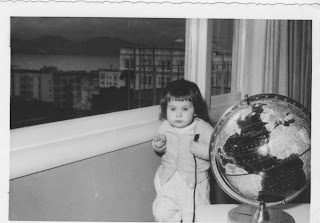Saturday, March 11, 2006
See our Tower of Health!

Community Christian Academy Library, Lowell MA
Have you ever seen anything so healthy?! These are all courtesy of an Amazon gift certificate from Mrs. Berman - a good friend of CCA. She put no strings on her gift so I chose to increase our collection on the human body - at the middle school reading level.
We were able to get about 20 books - mostly used hardbound - for about $220 - great value for the money. There was considerable time though spent in selecting the books and then making the purchases through the used book mechanism of Amazon.
As I write this post, the books are still in processing - that means waiting to be put into the catalog but this batch is on top of the queue...
I focused on three subject areas: systems of the body, genetics, and diseases. I also focused exclusively on books for circulation - none for reference. This is backwards from typical library practice - "fill in reference first" but since we have no place for kids to study the reference books in the library - it makes better sense to get them books they can remove from the library.
Being new to the topic and its resources I needed to find the best authors/publishers..I didn't automatically know them like I know other resources. The following part of this post will be of most interest to other book selectors for tiny school libraries. I will first describe how I used some expensive tools still available to me, but then I will share how to do it on cheap.
My first task was to find out who the big names were- who were the publishers, series, and authors active in these subject areas. I did this by going to various sources and noting how many times I saw them...it became obvious because I kept seeing the same names. Through my Alumane connection to Simmons College I still have access to 2 databases Worldcat and BooksInPrint that cut this job down to size quickly. Worldcat lists the holdings of most libraries in North America, etc which allows me to see, for example, the most held book on the circulatory system for juvenile readers across the U.S. - mostly in public libraries. Scanning the list of the top 10 books on this subject yields hints about a prolific author, an interesting series and a popular publisher.
Few of these are recent - since these are the most held books - they are likely to have some age on them - so I go to my source that will tell me the most recent and even forthcoming books by these authors, publishers or additions to series - BooksInPrint. These tell me recent editions, publishers current in the subject and adding to series. But since I will be buying used at Amazon - I will likely not have access to the very newest - but its good to know the options in order to put the quality of the offerings into perspective.
I now have a list of potentials in a certain subject - but need to have more of an idea of their contents. Because of their popularity with librarians, I'm 99% sure they are scientifically accurate and well written for the audience but I want to doublecheck the reading level required plus see that certain hot topics are handled in the way that the school is comfortable with. I can't examine these in person so I am going to need to rely on other sources.
For science works I always check SB&F - Science Books and Films Online (45$/yr); these are detailed reviews written from a secular viewpoint but yet very useful in assessing the worldview within a certain book. They are also excellent for pointing out scientific inaccuracies. They may not have the exact book - but there is a good chance they will have something by that author or publisher - still useful for comparison.
I also check Christian Library Journal (20$/yr) - it is hit or miss that they will even have much of the subject matter but if they do - its a valuable review.
I also mine the catalog of my local public library. Many libraries now link from the book's record right to professional review journals full of reviews written from a librarian's perspective. That means it is not intended to sell you something or grind an axe but tell you if the book does what it intends to. Usually these are fairly lengthy.
Amazon is a also a source for reviews...the editorial reviews are the most immeditately useful...but the readers' reviews can provide valuable insight - sometimes in ways that the writer did not intend. And there is some concern that Amazon does not post all the negative reviews it gets - which leads to a skewing of the results.
Here is On The Cheap
1) find out what other schools are holding by tapping into their online catalog
a) the largest Christian schools in your area - this will tell you "safe" books
b) the most expensive private schools in your area - this will tell you most scientifically reliable and the most well respected
2) find out the most held books on a certain subject by going into the online catalog in a large library system such as Chicago, Los Angelos, Queens - it doesn't have to be one near you - it just
has to be one that has many branches.
3) at your public library or the ones above - check out the links to reviews
4) check the reviews at Amazon
permanent link
